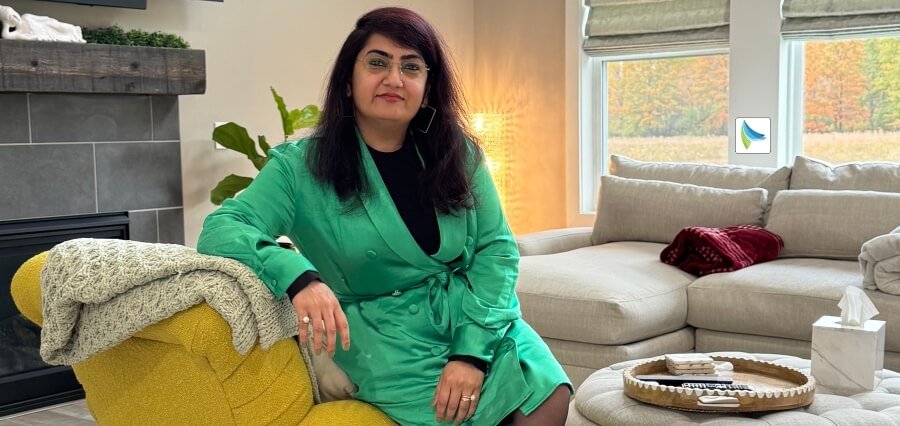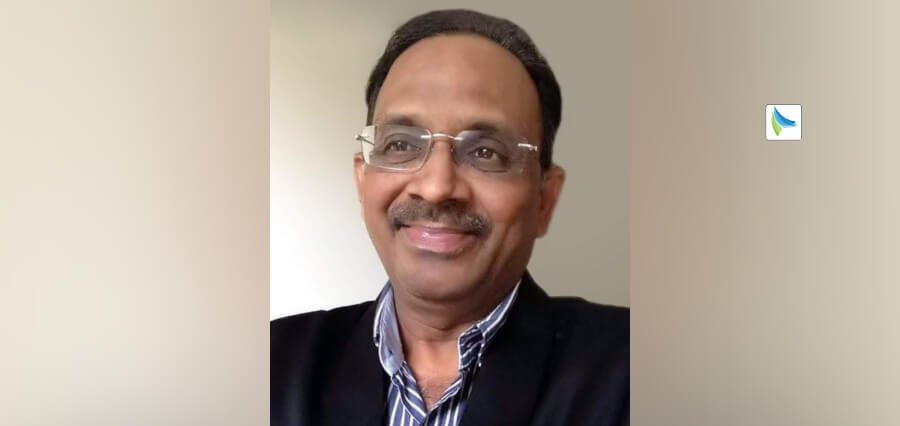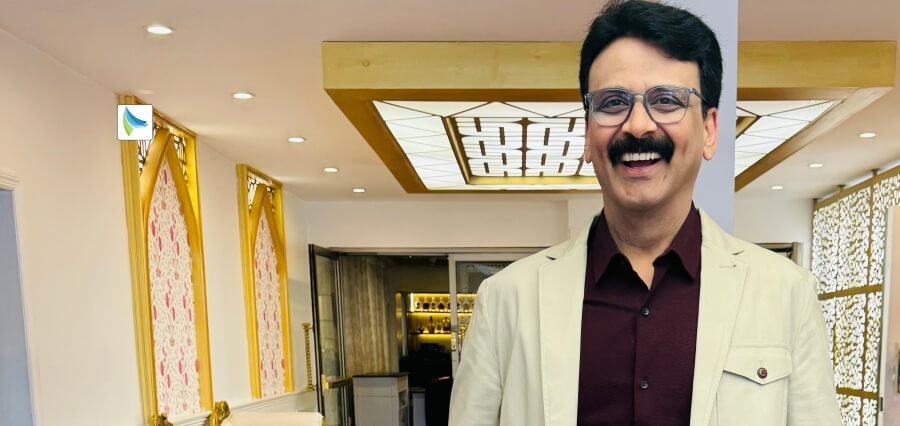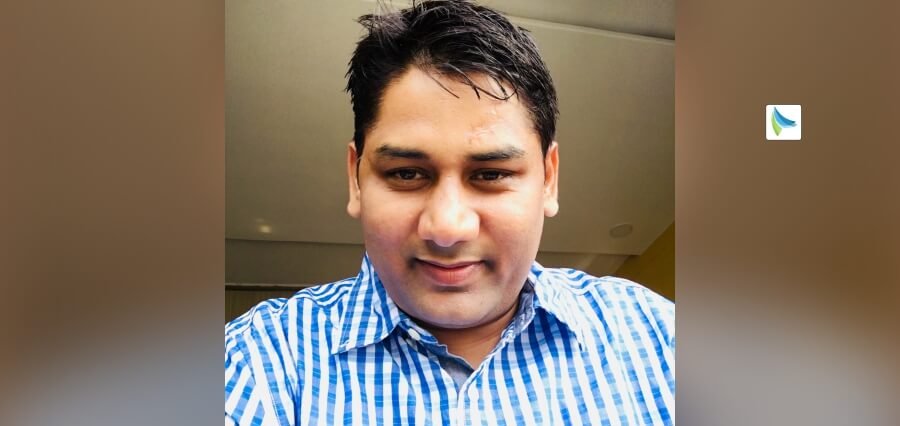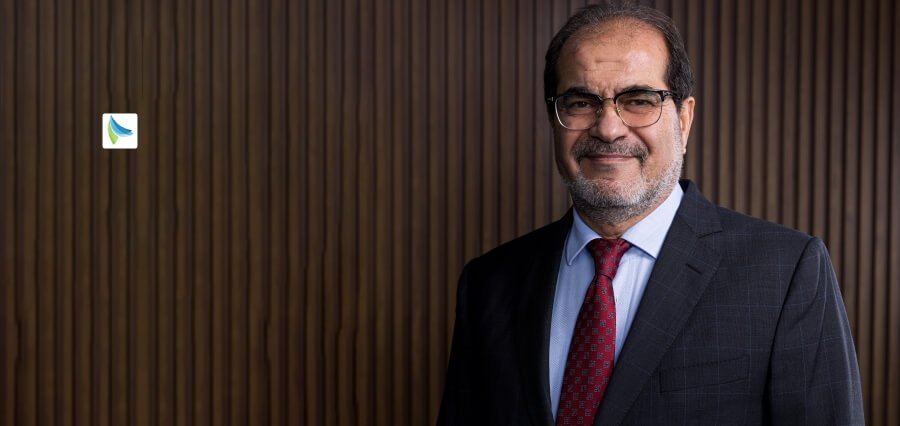“My desire to heal and to fix what was broken is what launched my medical career, but when I realized healing requires listening and really seeing people as well, I became a health coach to make an impact through this approach too,” asserts Katharina.
In an era where chronic diseases are on the rise and healthcare systems are stretched thin, Katharina is leveraging her diverse experiences and progressive technology to tackle a silent epidemic. Dr. Katharina Mahadeva Cadwell, a seasoned internist and palliative care specialist, is on a mission to reverse prediabetes in business executives and founders before it progresses to full-blown diabetes.
With over 88 million American adults living with prediabetes and 84% unaware of their condition, the need for innovative solutions has never been more pressing. Enter Vivo, Ltd., Katharina’s brainchild born from her experiences in rural hospitals, academic settings, and Silicon Valley classrooms.
Her journey began in the challenging environment of rural and critical access hospitals, where limited resources honed her ability to think several steps ahead and plan for multiple scenarios. This experience, combined with her international background practicing in both Germany and the U.S., shaped her unique approach to patient care—one that emphasizes empathy, perspective-shifting, and genuine curiosity about others’ experiences.
These principles form the foundation of Vivo’s innovative platform. The company is currently developing an AI-driven app that will provide science-backed behavioral strategies for smoother lifestyle changes, making support for prediabetes more accessible and user-friendly. By focusing on the point where prediabetes is just barely detectable, Vivo aims to change the trajectory of the disease long before it becomes chronic.
Katharina’s vision extends beyond individual care. She’s exploring how AI-driven analytics can diagnose inefficiencies in healthcare systems and develop impactful solutions. The potential of AI to analyze massive amounts of data faster than humans, potentially eliminating biases and detecting abnormalities earlier, is a key component of her approach.
As healthcare continues to evolve, she stands at the forefront of a new paradigm that combines the best of human empathy with technological innovation. Her journey from rural hospitals to the heart of Silicon Valley innovation demonstrates that the future of healthcare lies not just in treating diseases, but in empowering individuals to prevent them in the first place. In doing so, she is writing a new chapter in preventive care, one that harnesses the power of AI while never losing sight of the human element at the heart of medicine.
Let us learn more about her journey:
Journey of Healing and Invention
Katharina stands as a distinguished Internist and Palliative Care specialist, bringing two decades of clinical experience to her practice. She serves as an assistant professor at the University of Nevada, Las Vegas, where she imparts her knowledge and expertise to resident physicians in the Family Residency Program. A graduate of the Stanford LEAD Graduate School of Business, she is also an Integrative Nutrition Health Coach, embodying a holistic approach to healthcare.
For her, medicine represents a profound opportunity to provide not just relief from pain, but genuine healing. She understands that healing can manifest in various forms beyond traditional physical medicine. Her initial aspiration to mend what was broken propelled her into a medical career, but it was her realization that true healing requires deep listening and a genuine connection with patients that inspired her to become a health coach. This dual focus allows her to make a significant impact on the lives of those she serves.
Reflecting on the lessons of history, she recognizes the extraordinary advancements in technology that have revolutionized the medical field. The capabilities of artificial intelligence (AI) in healthcare are remarkable, enhancing the ability to diagnose, examine, operate, and predict patient outcomes. These innovations not only advance patient-centered, proactive, and preventive care but also catalyze a cultural shift within the healthcare sector.
As a passionate advocate for patient empowerment, integrative medicine, and empathic leadership, Katharina combines her classical training as a physician with her expertise as a health coach and her enthusiasm for AI. This unique blend positions her to lead her company toward a future where innovative healthcare solutions illuminate the path to healing.
The Genesis of Vivo, Ltd.
Katharina’s company, Vivo, Ltd., stands as an alarm of hope in the realm of health coaching, dedicated to assisting business executives and founders in reversing prediabetes. Her mission is clear: to encourage individuals to focus on driving their companies and visions forward, rather than being burdened by escalating hospital bills and lengthy medication lists.
During her time at Stanford LEAD, Katharina experienced a pivotal moment while working on a project for her design class. It was then that she recognized a recurring theme in her conversations with patients: the question, “When did it all start?” This insight sparked a profound realization—why not revisit a point in time when the trajectory of a disease could be altered, long before it evolves into a chronic condition?
With a practical mindset, Katharina identified prediabetes as a critical area of focus. This condition is not only the most prevalent but also the most preventable, leading to significant complications if left unaddressed. She understood that patients with prediabetes would derive the greatest benefit from her innovative approach. By implementing low-cost yet highly effective lifestyle strategies, she aimed to make prevention accessible and achievable for those at risk, ultimately transforming lives and fostering a healthier future.
Understanding through Travel and Healthcare
Studying and practicing in two distinct countries and healthcare systems profoundly shaped Katharina’s perspective. Travel had always held significant importance for her, as did the pursuit of foreign languages. This passion provided her with invaluable insights into the cultures and mindsets of the people who spoke those languages.
For her, connecting with others and their cultures served as a vital reality check, allowing her to reflect on her own upbringing and viewpoints. She possessed an exceptional ability to shift her perspective, often imagining herself living a different life to explore what it might be like.
Experiencing various approaches to patient care in Germany and the United States, Katharina noticed that while the systems were not drastically different, the subtle distinctions were striking. This exposure heightened her awareness of patient autonomy and support, significantly influencing her decision to specialize in palliative care and later become a coach. It enabled her to develop an effective collaborative communication style, fostering partnerships with patients in their care and goal-setting processes.
The principles that guided her patient care approach, along with her deep appreciation for travel, informed her interactions with individuals from diverse backgrounds. Empathy emerged as a crucial element in her practice, allowing her to genuinely understand and appreciate the experiences of others. This openness diminished her fear of connecting with people, revealing the immense potential for personal and professional growth that arises from such authentic relationships. Through these connections, both individuals and teams can thrive, unlocking new possibilities for development and understanding.
Solving Medical Mysteries and Empowering Patients
Katharina finds immense joy in the detective work inherent in her role as an internist. One of her proudest achievements occurred when the American Board of Internal Medicine (ABIM) selected her as one of the top-ranked specialists to join a panel responsible for updating the specialty board exam. This recognition not only reflects her expertise but also underscores her commitment to the field.
In her practice at a rural critical access hospital, she often feels as though she has been sent on a challenging hike with minimal resources. This environment has taught her the importance of survival skills and the ability to manage emergencies when assistance is scarce. Such experiences have honed her capacity to think several steps ahead, considering multiple scenarios and calculating potential risks.
This proactive approach has proven invaluable, allowing Katharina to meticulously plan for various outcomes. Her foresight benefits both her patients and her colleagues, as it creates a comprehensive roadmap for addressing potential challenges. Patients appreciate this thoroughness, feeling reassured when they learn that their doctor is contemplating all possibilities in a manner they can understand. This collaborative approach not only alleviates patient anxiety but also reinforces her desire to empower her patients, ensuring they are active participants in their own care and decision-making processes.
Passion for Teaching and Mentorship in Medicine
From an early age, Katharina exhibited a profound love for sharing knowledge and discoveries with others. This passion blossomed during her time in medical school, residency, and fellowship training, where she seized numerous opportunities to create lectures, lessons, and presentations. Within the culture of medicine, the belief that physicians should teach one another provided the ideal environment for her natural inclination to flourish.
Throughout her career, Katharina served as an assistant professor at the University of Nevada, Las Vegas (UNLV), and the University of Nevada, Reno. She was also an active member of Project ECHO Palliative Care Nevada, a nationwide initiative aimed at educating healthcare providers through peer-to-peer learning. Through this project, she delivered several lectures on palliative care topics and conducted regular interactive sessions for her residents.
Mentoring emerged as a natural extension of her approach to practicing medicine and engaging with patients and team members. She emphasized the importance of demonstrating and coaching effective patient partnerships, fostering a sense of empathy among her residents and students. Recognizing that medicine is inherently collaborative, she currently mentors some of her colleagues, believing that sharing both knowledge and the skill of empathic leadership is one of the most vital responsibilities of a well-rounded physician.
By acknowledging the role of a coach, she skillfully integrates her teaching passion with her medical expertise. Successful health coaching requires a delicate balance of knowledge, enabling clients to make informed decisions and take actions that best serve their needs.
Approaches to Healthcare Challenges
Katharina’s journey led to the creation of Vivo, Ltd., a company dedicated to addressing the challenges faced by individuals with prediabetes. Her primary objective was to enhance support for this population, making it more accessible and user-friendly while alleviating both physical and systemic pain points within the healthcare landscape.
By analyzing existing successful strategies and identifying areas of difficulty, she focused on the patient journey. Katharina recognized that a generative AI coaching approach, grounded in scientifically-backed behavioral strategies, could facilitate smoother lifestyle changes for those at risk of developing diabetes.
To ensure that patients receive robust, data-driven recommendations for lifestyle adjustments tailored to prediabetes, she initiated a collaboration with two students from the University of Applied Sciences in Northwestern Switzerland, alongside Dr. Christine Jacob, a renowned digital health researcher. This project, set to conclude in August, aims to provide foundational insights that will inform the recommendations integrated into Vivo’s forthcoming app.
Optimizing Healthcare Delivery
Katharina emphasized the importance of considering several key objectives when enhancing patient and provider experiences in healthcare. She highlighted the need for care delivery to be effective, comprehensive, just, equitable, efficient, and resource-conscious. Inefficiencies, she noted, can lead to lost revenue and potentially harmful consequences for individual patients or entire patient groups.
Fortunately, Katharina pointed out that AI-driven analytics tools offer powerful solutions for diagnosing inefficiencies, identifying missed data opportunities (such as the varying interconnectivity of health systems), and developing impactful strategies to address these challenges. One such tool is provided by the startup company CouldAstra, which offers services aimed at resolving bottlenecks in the patient and provider journey, ensuring more efficient, safe, and cost-effective healthcare systems.
AI-driven solutions prove invaluable when dealing with large datasets and integration challenges. These technologies can analyze massive amounts of data in a fraction of the time it would take a human, and when trained and quality-assured properly, they can eliminate biases to detect abnormalities earlier (e.g., using multifunction cardiograms for risk stratification of intermediate-risk patients) and discern emerging patterns before they become apparent to human observers.
Moreover, AI enables more patient-centered, individualized care, allowing for safe and effective treatment delivery in patients’ homes, reducing the burden on both patients with chronic diseases and those who are active, working, and juggling multiple responsibilities.
Ballet, Guitars, and Culinary Adventures
Katharina possesses a deep passion for exploration and travel, although her current job imposes certain limitations on her adventures. In 2017, she made the decision to embrace new challenges by taking up the classical guitar and ukulele. This endeavor proved to be quite demanding, particularly since her only prior experience with music had been playing the recorder as a child, while ballet had occupied her for 25 years.
Determined to master these string instruments, Katharina embarked on this musical journey, which unexpectedly led her to meet her husband. Their connection was instant, as they quickly discovered they were like two peas in a pod. Together, they now share a love for travel and enjoy preparing the culinary delights they encountered during their adventures. This narrative unfolds as a testament to the beautiful experiences that emerged from her pursuit of music.
Managing Difficult Conversations in Palliative Care
When confronted with challenging conversations, Katharina adheres to a fundamental principle: she allows the patient to take the lead. This approach helps her gauge the patient’s understanding of their situation and their willingness to engage with the information being shared. As a physician, she positions herself as an ally and partner, dedicated to providing the best possible information in a manner that aligns with the patient’s readiness and pace.
Clarity in communication is paramount for Katharina. She believes in delivering straightforward information while ensuring that compassion underpins every interaction. By creating a safe space, she encourages patients to explore the emotional impact of the information conveyed, allowing them to express their feelings without fear of judgment. This aspect of her practice is crucial, as subtle forms of judgment can often seep into doctor-patient dialogues. Katharina recognizes that asserting authority over a patient’s choices can inadvertently undermine their autonomy. Therefore, she emphasizes the importance of acknowledging the patient’s authority over their health goals and experiences.
In palliative care, Katharina employs a coaching-style approach that fosters shared decision-making as a collaborative partnership. This methodology naturally complements her palliative care skill set, allowing her to guide patients through their healthcare journeys with empathy and respect.
Power of the Stanford LEAD Network
Katharina has effectively leveraged the knowledge and connections gained from her Stanford LEAD program to foster innovation and create a meaningful impact in her work. The network has proven to be an invaluable resource during the development of her company and its underlying concepts.
Whenever she encountered challenges or uncertainty, Katharina found support and insights from her peers, enabling her to make significant progress toward her goals. Perhaps the most profound benefit of this experience has been the confidence instilled in her, reassuring her that success is attainable even in moments of self-doubt.
Culture of Support and Growth at Northern
At Northern, the team thrives in an environment characterized by healthy, open, and supportive interactions. The leadership actively fosters this culture among the hospitalist physicians, promoting a sense of unity and collaboration. Together, they work towards a common goal, understanding that continuous learning and serving as a resource for one another are essential for collective success.
Among the team, Katharina finds great fulfillment in the coaching aspect of her role. She is dedicated to mentoring younger colleagues, especially when they face challenging cases or situations. With two decades of experience in medicine, she has honed her skills and is always ready to guide and support her peers, ensuring that everyone benefits from shared knowledge and expertise.
Decisive Leadership in Critical Moments
Katharina often finds herself in situations where swift action is necessary to save a patient’s life. During these critical moments, she must adapt her leadership style to ensure the team responds efficiently and effectively.
Typically, she values a collaborative approach, taking the time to listen to her team’s insights, impressions, and observations. However, when a patient’s condition deteriorates rapidly, she must transition into a more authoritative role to drive the team forward swiftly and effectively.
In these high-pressure situations, her communication may come across as concise, but her primary focus is on the patient’s well-being. Her extensive training has equipped her with the knowledge and decision-making skills required to guide the team through these challenging scenarios.
Fortunately, Katharina’s team members, who share similar levels of experience and training, are adept at recognizing the need for this decisive leadership style. They understand that in moments of crisis, clear directives and a sense of urgency are essential to providing the best possible care for the patient.
To Follow/Connect: https://www.linkedin.com/in/katharina-mahadeva-cadwell-846b7420b/









